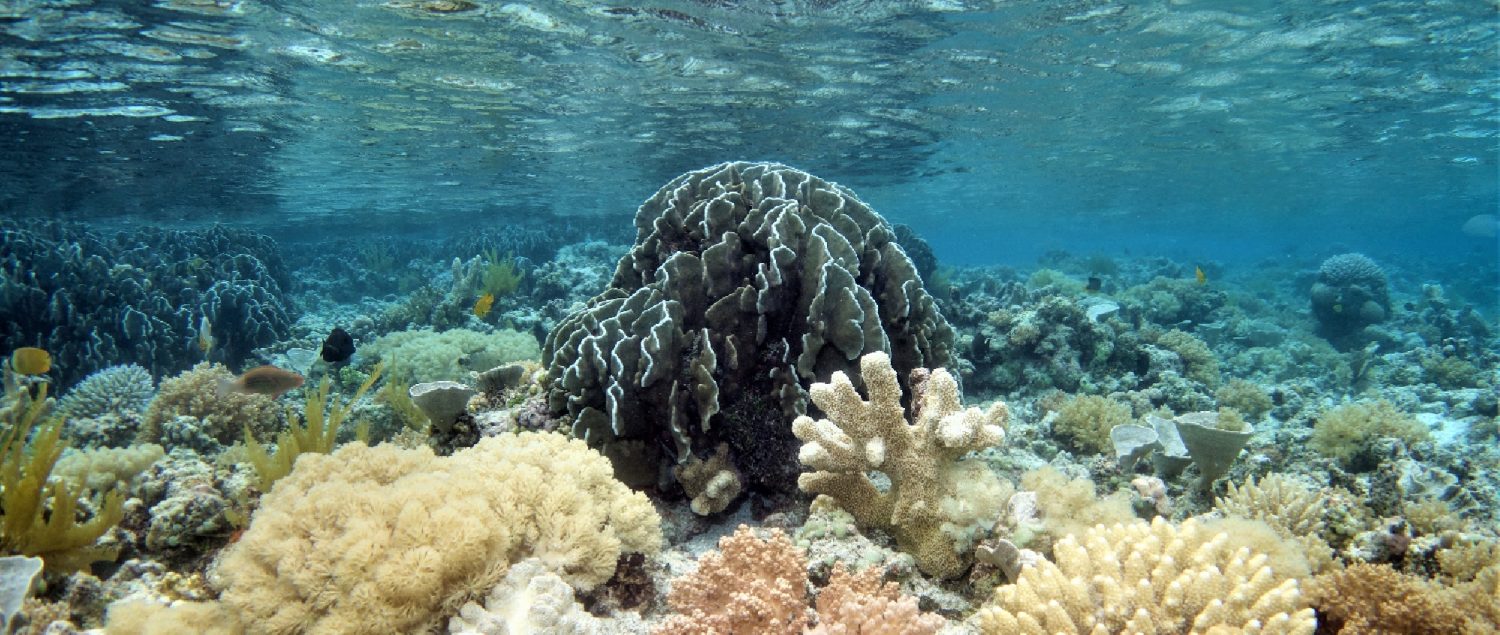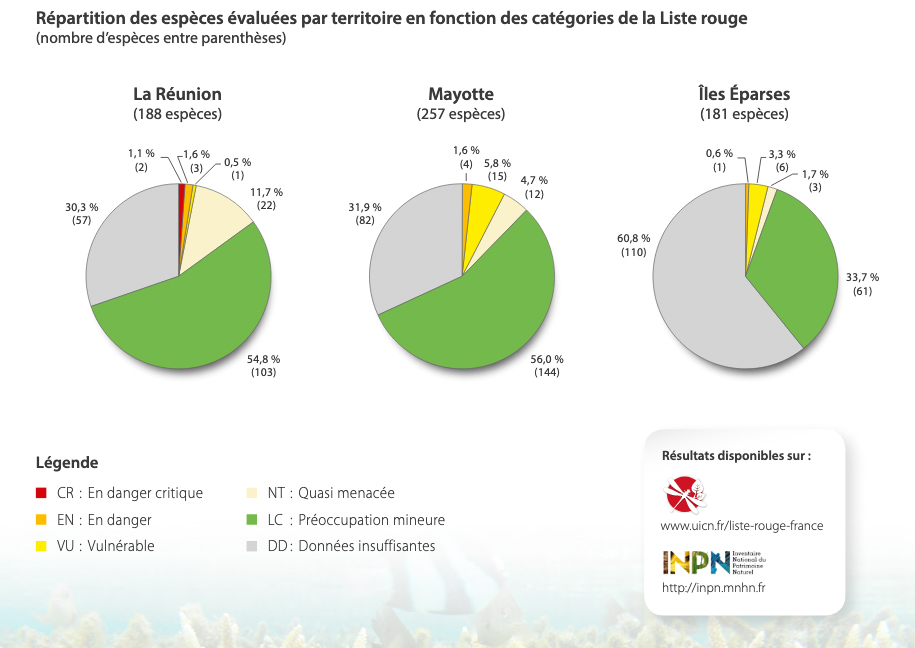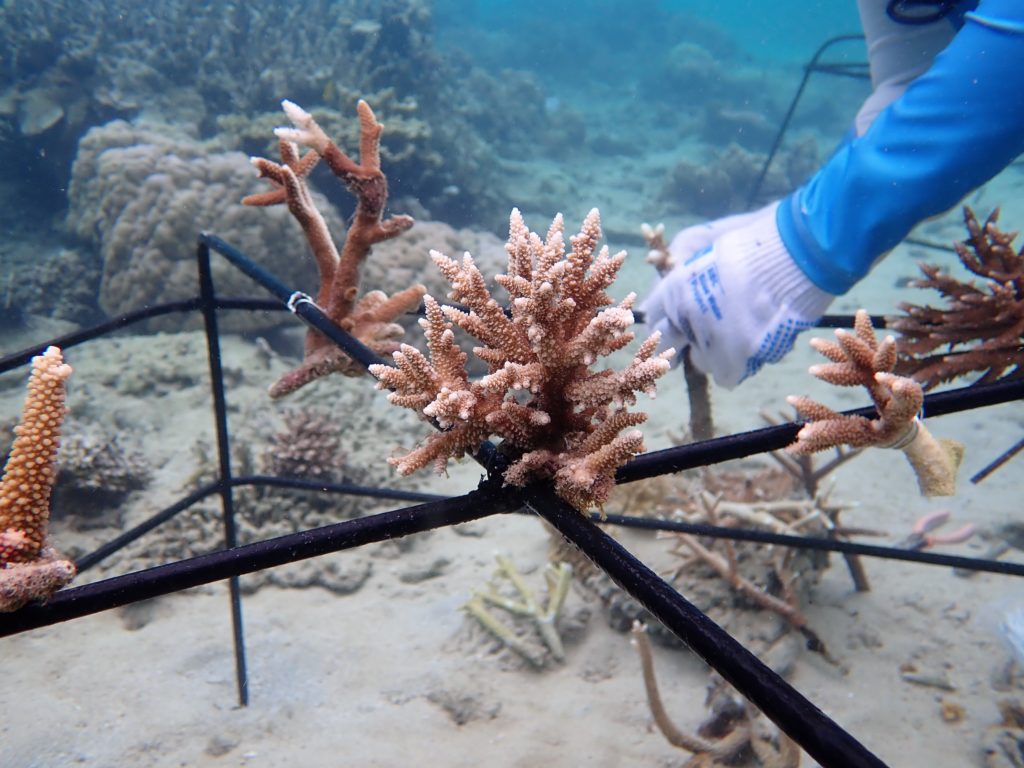Designing With Web - Part 3: week 1
Improve ocean health and marine biodiversity
Group "151"
- Zinédine KEBE: My exploration
- Alix TRUCHETTO: My exploration
- Caroline SELWAN: My exploration
- Hugo FUGER: My exploration
- Ghislain WILLAUME: My exploration
-
The Reef Rescuers project started eight years ago and they have grown over 50,000 coral fragments. The project is using the coral gardening method consisting in "farming" corals to use them to restore coral reefs.
It consists in operating underwater corals garden/nurseries and plant them once ready in the protected areas.
More information -
The Reef Restoration and Adaptation Program aims to investigate technologies to prevent or reduce bleaching stress on coral reefs by reducing the amount of solar radiation reaching the Reef.
This includes the concepts of creating shade through clouds, mist, fog or surface films to reduce solar radiation during high-risk periods for coral bleaching.
The interventions being investigated range from the scale of an individual reef to protecting the entire Great Barrier Reef Marine Park.
Cooling and shading interventions aim to maintain existing biodiversity, cultural values, and ecosystem services.
More information -
Coral Guardian offers to adopt an individual coral that was grown in a coral nursery. Once these corals reach a certain size, they're transplanted to local reefs that have been damaged or are suffering from coral bleaching or dynamiting.
More information - Corals in the French islands of the Indian Ocean threatened with extinction Article on the threat of coral disappearance in the French islands of the Indian Ocean
- Endangered corals in the French islands of the Indian OceanArticle measuring the extent of the danger to corals in the French Islands of the Indian Ocean
- Fisherman with no fish Video showing us the danger for our corals and shows how scuba diver and conservationist Nayantara Jain is fighting to save them.
- The status of the coral reefs of French Scattered Islands in the Indian Ocean Very exhaustive article which explains the situation of corals in the French islands of the Indian Ocean.
- An ingenious proposal for scaling up marine protection Video showing why our project is fundamental and useful
- The Planet Ocean app is developped by the NGO SeaWeb Europe and the Goodplanet foundation. This app aims to make information available on the stocks of the major species of fish consumed (threatened or sustainably managed) in order to raise people awareness about the oceans’ destruction.
The stocks of each species is indicated there, as well as the associated fishing techniques (bottom trawl, line, longline, seine, net, etc.).
Free app for Android and iPhone
Link to the app - BiodiverSea is a smartphone application facilitating the identification of Mediterranean fish. It presents more than 180 species, more than 400 photos as well as an identification aid questionnaire.
This easy-to-use application is intended for divers, and more generally for all who is wishing to discover Mediterranean underwater biodiversity. €4.40 for Androids.
Link to the app - Yuka is a well-known French application that is dedicated to keeping consumers informed about the food they eat. By scanning the product’s barcode, it shows all the details about the nutrionnal values of this product.
Yuka is not specialized in the trackability of fishes, but the application puts a higher grade for the products that have a good trackability. Free, for Android and iPhones.
Link to the app - Cash Investigation about Industrial fishing, 2 hours long documentary about the dangers of overfishing and industrial fishing
- Marine Conservation Institute, article about overfishing and the biggest problems facing fish in our oceans
- Fisherman with no fish, video by National Geographic showing us the consequences of overfishing
- What is really on your plate article to help protect endangered marine and freshwater species through your dining choices
- About tuna overfishing (WWF), Article showing the dangers of overfishing tuna
Project 1: Coralsaviors
Context
There are many reasons why we have to save corals and promote corals mutiplication. Firstly, reefs cover less than 1% of the ocean floor, yet 25% of fish species spend some part of their life cycles in them. Secondly, up to 85% of the oxygen we breathe comes from the ocean, but a healthy ocean depends on healthy reefs. Thirdly, estimates of the overall economic value of reefs suggest they contribute between $30 billion and more than $375 billion to the world economy annually. Furthermore, a 6th mass extinction is coming. The temperature and the acidity of the ocean are rising. There is a phenomenon of bleaching on the coral reefs. A lot of marine animals are not capable to survive and adapt themselves to face the changing of temperature and acidity. It will be worse if we do nothing. In the past 30 years we’ve lost half of the world’s corals. By 2030, 60% of all corals reefs are expected to be threatened, and 98% of reefs will be exposed to potentially fatal conditions every year.
The researchers have figured out how to cultivate new coral much faster than it would naturally grow in the wild, by planting small fragments in specialized tanks and underwater nurseries. Hanging from these “trees,” the coral grows about four times as fast as it would on a rock or reef. Over the past seven years, Mote researchers and volunteers have planted at least 30,000 coral fragments on reefs.
Our solutions aims to be implemented as fast as possible given the current situation pre-described. As such, app launch is programmed for April 2021. The team is composed of passioned and engaged individuals willing to tackle environmental issues and especially those related to ocean health and marine biodiversity. Accordingly, our team is made up of experts in marine technology as well as marine life biology. Our action will be located on the French islands of the Indian Ocean. For the first time, the risk of disappearance of all species of reef-building corals in the French islands of the Indian Ocean has been assessed by a panel of specialists. The results show that 15% of the species are threatened or almost threatened in Reunion Island, 12% in Mayotte and 6% in the Éparses islands.
Target
Our solution is specifically designed to ease the wonderful work of public institutions, NGO's, researchers and volunteers from the French islands of the Indian Ocean Indeed, these actors do not lack engagement towards fixing issues that corals reefs are facing. Moreover, technological solutions exists in order to restore corals. However, what is lacking globally is an efficient, simple and accessible interface to be informed live about the health situation and evolution of coral reefs.
Service offered
Our solution consists of providing our users with a platform that allows them to list the various actions that have been taken by the various stakeholders. We provide them with an interactive map that allows them to organise the actions according to the areas to be prioritised according to whether they are more affected by coral bleaching or destruction due to over-fishing. Ultimately, this will help to ensure the proper management of the different coral reefs in the French islands of the Indian Ocean . Our action will be done through an application that will allow us to target different areas of the French islands of the Indian Ocean.
Identity









Benchmark
References
Project 2: Fish tracker
Context
Overfishing with the problem of plastic and the ocean's acidification is one of the 3 main reasons why the ocean biodiversity is threatened today. Indeed, as the world population keeps growing, we keep eating more and more fish. However, even if some rules exist, protecting the most threatened fishes, the "Food and Agriculture Organization" have estimated that over 50% of species of marine fish have been fully or over-exploited. This means that not only blue whales and dolphins are threatened today: some of the fishes you eat everyday can be in danger as well!
For example, one of the most eaten fish in France is tuna. Tuna is mainly fished in two different ways: by angling or by hooking. The problem is that when you leave a thousand hooks in the ocean, not only tunas will be hooked. Indeed, turtles, dolphins... and others more threatened species can be hurt by the hooks. Moreover, tuna fishing is strictly regulated, but even like this, tunas are everytime more threatened by extinction. One good way for stopping the massacre going on is to care about how the tuna (and all the fish you eat in general) you eat was fished and how it arrived in your supermarket.
Tuna is not the only fish daily eaten in Europe who could disappear in the coming years. That's why we have to start acting now, and try to eat in a more responsible way, as we already do with meat.
Our application's aim is to help you track the origin of the fish you eat, in order to adopt this more responsible way of eating we are talking about.
Target
Fish Tracker is designed for all the fish eaters around the world and who would like to have a responsible way of eating it. Indeed, many people are aware of the consequences of humans' activities on our oceans. Every day, more and more people are getting intrested in environemental issues that are caused by humans activities. Overfishing is one of those activities, and we must find a way to stop it. Not only fishing companies can have an impact on this problem, but consumers can also help reduce it. By choosing more carefully the products you buy in a supermarket, you will have a more responsible way of eating fish and you won't take part in the destruction of marine biodiversity. However it can be quite difficult to know for sure where the fish you are about to eat comes from. Thanks to our application, you can either scan the product or type it in the browser, and you'll get all the information you need about whether or not it is eco friendly.
Service offered
By scanning your product with our application, you will be able to get information about all the steps it went through before arriving in your supermarket. You can also use the browser to get information about the product in the app and find it.
Identity








